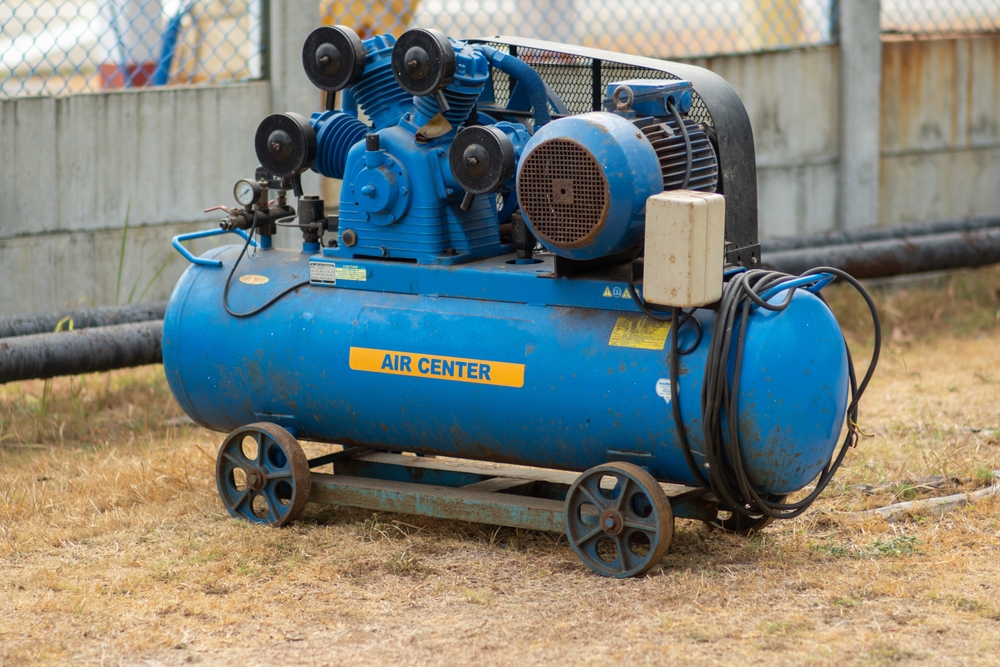

Milwaukee’s winters are infamous for their biting cold and persistent snowfall. For businesses and individuals relying on air compressors, this season brings unique challenges. Proper cold-weather care is critical to ensure your equipment operates efficiently and avoids costly downtime. Leveraging Wisconsin expertise, this guide will walk you through essential steps to maintain your air compressor during the harsh winter months.
Understanding the Impact of Milwaukee Winters on Air Compressors
Air compressors are robust machines, but extreme weather conditions in Milwaukee can push them to their limits. Cold temperatures can cause components to contract, leading to potential malfunctions. Additionally, moisture in the air can freeze within the system, potentially causing damage. Understanding these risks is the first step in establishing a robust preventative maintenance strategy.
Common Winter Challenges for Air Compressors
- Frozen Condensate: Moisture in compressed air can freeze, leading to blockages or damage.
- Thickened Lubricants: Low temperatures can cause lubricants to thicken, reducing their effectiveness.
- Decreased Battery Performance: If your system includes battery-powered components, they may struggle to operate efficiently in the cold.
- Cracked Hoses or Seals: Temperature fluctuations can make hoses and seals brittle, increasing the risk of cracks and leaks.
Essential Cold-Weather Care Practices
Addressing these challenges requires a comprehensive approach to cold-weather care. By following these guidelines, you can protect your air compressor and ensure it operates optimally throughout Milwaukee’s winter season.
1. Choose the Right Location
The location of your air compressor plays a significant role in its winter performance. Ideally, the equipment should be placed in a climate-controlled environment. If this isn’t feasible, consider insulating the compressor or using a heated enclosure to shield it from extreme temperatures.
2. Perform Regular Inspections
Frequent inspections are a cornerstone of effective preventative maintenance. Check for:
- Cracks or wear in hoses and seals.
- Proper lubricant levels and consistency.
- Unusual noises or vibrations during operation.
Addressing these issues promptly can prevent minor problems from escalating into major repairs.
3. Use Cold-Weather Lubricants
Standard lubricants may thicken in low temperatures, reducing their ability to protect moving parts. Switch to cold-weather-specific lubricants designed to perform well in Milwaukee’s sub-zero conditions. Always consult the manufacturer’s recommendations to ensure compatibility.
4. Drain Condensate Frequently
Condensate can accumulate in your air compressor, and during winter, this moisture is more likely to freeze. Drain the system regularly to prevent ice blockages that can hinder performance or cause damage.
5. Protect the Intake
Ensure the air intake is free from ice, snow, or debris. Clogged intakes can reduce efficiency and strain the system. Installing an intake filter or shield can provide added protection during snowy conditions.
6. Monitor System Performance
Keep a close eye on the performance metrics of your air compressor. Sudden drops in pressure or inconsistent operation could indicate cold-related issues. Modern systems often include diagnostic tools to assist in monitoring performance.
Advanced Preventative Maintenance Tips
For businesses heavily reliant on air compressors, taking additional steps can further enhance reliability and performance during Milwaukee’s winters.
Install a Dryer System
A dryer system removes moisture from the compressed air before it enters the equipment. This is particularly valuable in cold climates, where frozen moisture can wreak havoc on your system. Options include refrigerated dryers and desiccant dryers, depending on your specific needs.
Invest in a Winterization Kit
Winterization kits are tailored to prepare air compressors for extreme cold. These kits often include heaters, insulated covers, and additional accessories designed to keep your system running smoothly in sub-zero conditions.
Maintain a Stock of Spare Parts
Having spare parts on hand can save valuable time if repairs are needed. Focus on components that are particularly susceptible to winter-related issues, such as hoses, seals, and filters.
Schedule Professional Maintenance
Enlist the help of a technician with Wisconsin expertise to perform a comprehensive inspection and tune-up before the winter season begins. Their familiarity with local conditions can provide valuable insights and ensure your air compressor is winter-ready.
Adapting to Milwaukee’s Winter Realities
Beyond technical maintenance, adapting your operations to Milwaukee’s winter realities can help mitigate risks and enhance efficiency.
Train Your Team
Ensure your team is familiar with cold-weather care practices. Provide training on:
- Identifying early signs of cold-related issues.
- Proper procedures for draining condensate.
- Safely operating the equipment in low temperatures.
Adjust Operating Hours
If possible, schedule air compressor usage during warmer parts of the day. This minimizes the exposure to extreme cold and reduces strain on the equipment.
Optimize Energy Usage
Cold weather often leads to increased energy consumption. Monitor your air compressor’s energy usage and address inefficiencies promptly. This not only reduces operational costs but also extends the lifespan of the equipment.
Conclusion: Protecting Your Investment
Maintaining your air compressor during Milwaukee’s harsh winters is essential to ensure reliability and performance. By implementing cold-weather care practices and leveraging preventative maintenance, you can protect your investment and avoid costly disruptions. Tap into Wisconsin expertise by consulting local professionals who understand the unique challenges of this region. With the right approach, your air compressor will thrive even in the toughest winter conditions.
Stay proactive, stay prepared, and keep your operations running smoothly all winter long.
Need an Air Compressor Store in Milwaukee, WI?
Established in 1932, Wenniger Compressor Co. specializes in air compressors, centrifugal pumps, diaphragm metering pumps, fans, generators, high-pressure air compressors, hoists (all types), lubricated reciprocating air compressors, oil separators, refrigerated air compressor dryers, rotary screw, sliding vane air compressors, submersible pumps, and vacuum pumps. Additional services include rental units, parts, lubricants, rotary screw compressors, service calls, routine maintenance, and much more. Our employees are all licensed to help you make the best decision. Contact us today to schedule an appointment or to get an estimate on the perfect service you need.
